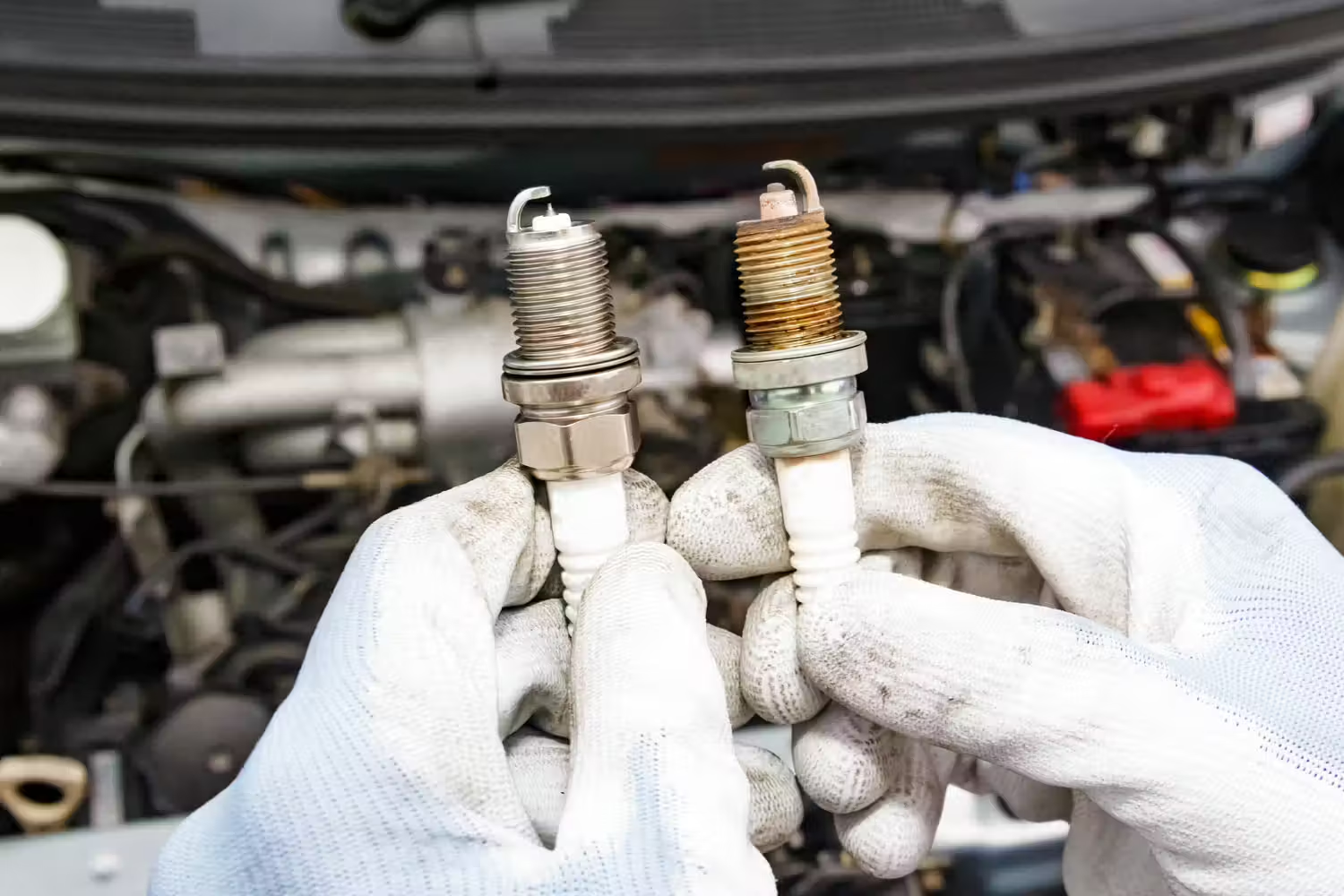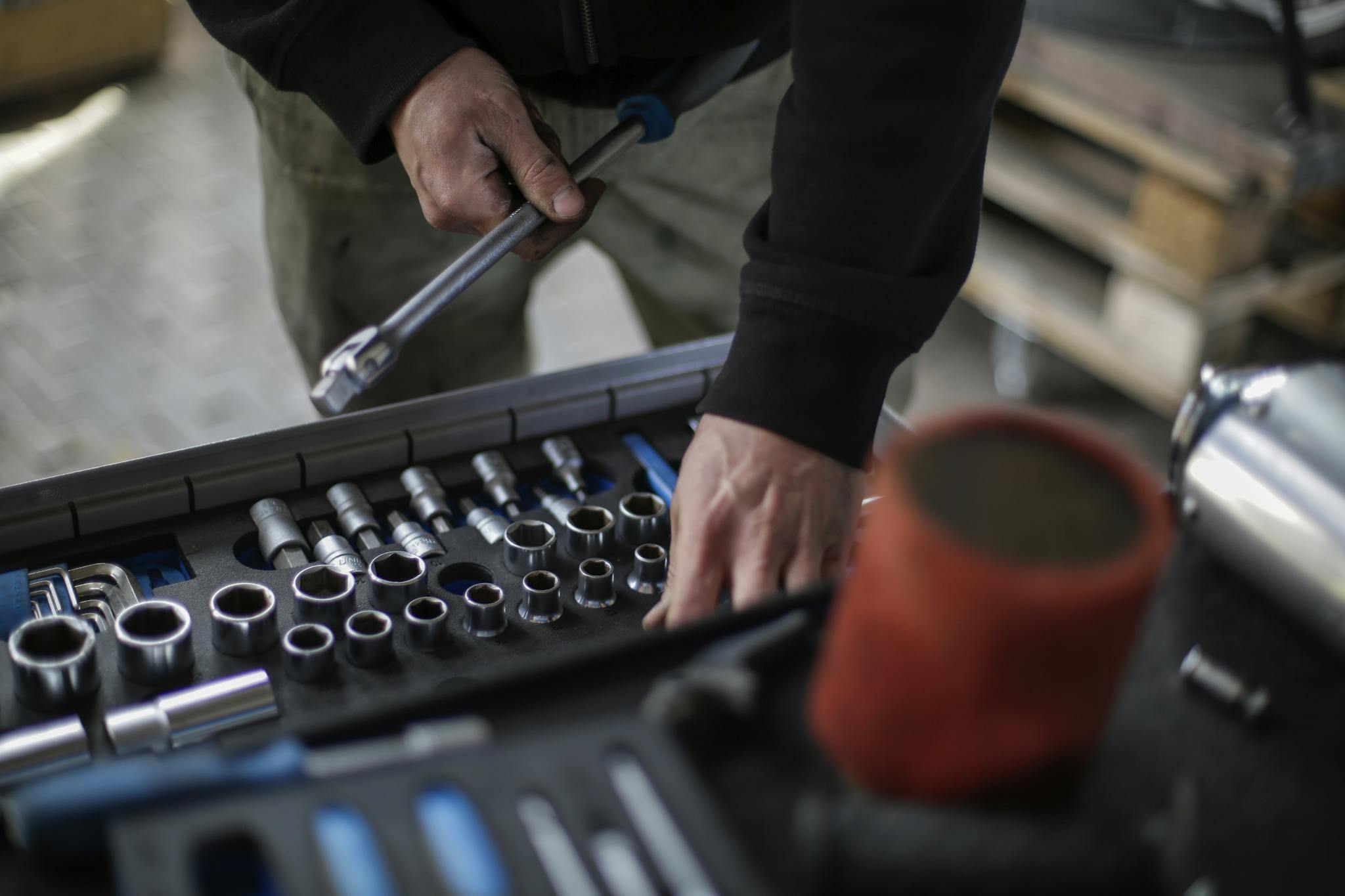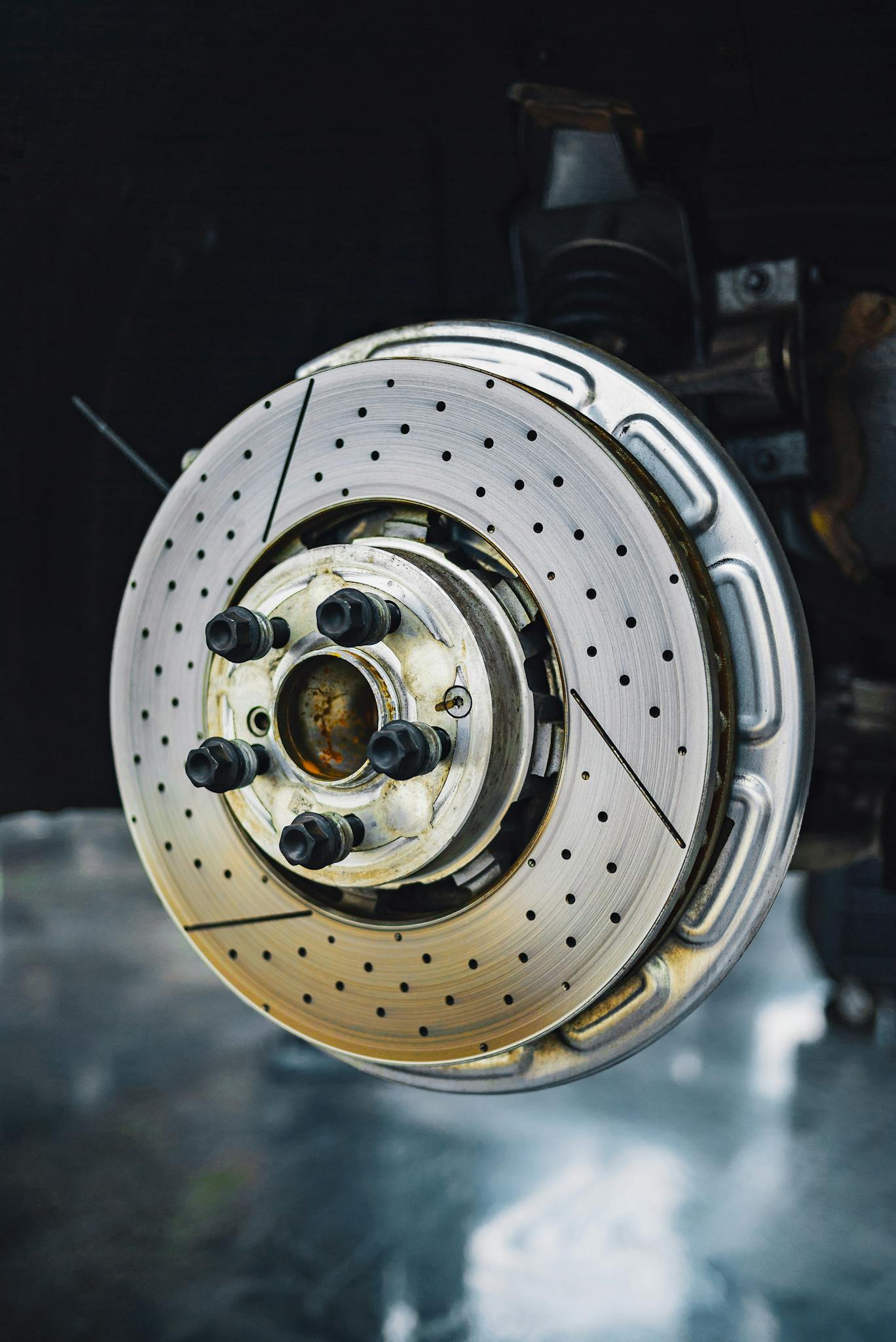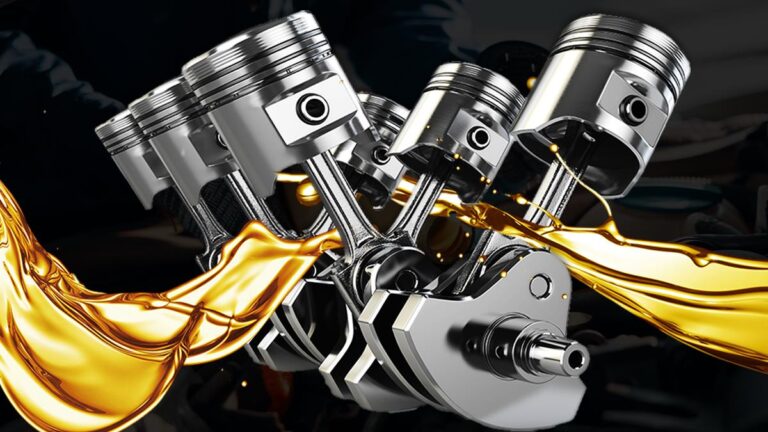The Importance of Replacing Engine Spark Plugs
Introduction
Engine spark plugs are small but mighty components of your vehicle. They play a crucial role in
the ignition system, sparking the air-fuel mixture in the engine’s combustion chamber. Despite
their size, spark plugs have a significant impact on engine performance and overall vehicle
operation. This blog post will delve into the importance of replacing engine spark plugs and why it
should be a part of your regular vehicle maintenance.
The Role of Spark Plugs
Spark plugs are responsible for igniting the air-fuel mixture in the engine’s combustion chamber.
This ignition provides the force needed to move the pistons in the engine, which in turn powers
the vehicle. When spark plugs are functioning correctly, your vehicle will have optimal
performance, fuel efficiency, and emissions.
Signs of Worn-Out Spark Plugs
Over time, spark plugs can wear out or become fouled due to carbon build-up, oil leakage, or a
too-rich air-fuel mixture. Here are some signs that your spark plugs may need replacing:
- Difficulty starting the vehicle: Worn-out spark plugs may struggle to ignite the air-fuel
mixture, making it harder for the vehicle to start. - Poor fuel economy: If your vehicle is consuming more fuel than usual, it could be due to
inefficient combustion caused by worn-out spark plugs. - Engine misfires or rough idling: These can be signs of spark plugs failing to ignite the
air-fuel mixture correctly. - Reduced acceleration: If your vehicle isn’t accelerating as smoothly or quickly as it used
to, it could be due to worn-out spark plugs.
The Importance of Replacing Spark Plugs
Replacing spark plugs at regular intervals can bring several benefits: - Improved fuel efficiency: New spark plugs can ignite the air-fuel mixture more
efficiently, leading to less fuel consumption and cost savings at the pump. - Enhanced engine performance: With new spark plugs, your engine can run smoother
and with more power, improving your driving experience. - Reduced emissions: Efficient combustion with new spark plugs can reduce the amount
of harmful emissions your vehicle produces, contributing to a cleaner environment. - Prevention of more serious engine damage: Neglecting to replace worn-out spark
plugs can lead to more serious (and expensive) engine problems down the line.
Conclusion
While they may be small, spark plugs play a big role in your vehicle’s operation. Regularly
replacing your engine’s spark plugs can ensure optimal performance, improve fuel efficiency, and
prevent more serious engine problems. So, the next time you’re scheduling routine vehicle
maintenance, don’t forget about your spark plugs!
Remember, every vehicle is different, and the recommended interval for changing spark plugs
can vary. Always refer to your vehicle’s owner’s manual for guidance or consult with a trusted
mechanic. Safe driving!
What are the different types of spark plugs?
There are several types of spark plugs, each made from different materials and offering unique
benefits. Here are the main types:
- Copper/Nickel Spark Plugs: These have a copper core with a nickel alloy coating. They
require the most voltage to create a spark due to their large diameter. However, nickel
alloy is a soft material, so these plugs need to be replaced more frequently 12 . - Iridium Spark Plugs: Iridium is more durable and harder than platinum. These plugs
have a small center electrode, so they require less voltage to generate a spark. They are
more expensive but last longer. Many new cars come with iridium spark plugs 12 . - Platinum Spark Plugs: These have a similar design to copper plugs, but the center
electrode is made from a platinum disc welded to the tip. Platinum is a stronger metal, so
these plugs last longer than copper ones. They also create more heat, which minimizes
carbon buildup 12 . - Double Platinum Spark Plugs: These are similar to platinum spark plugs but have a
platinum disc on both the center and ground electrodes for increased durability 1 .
Each type of spark plug has its own pros and cons, and the best choice depends on your
vehicle’s specifications and your driving conditions. Always refer to your vehicle’s owner’s
manual or consult with a trusted mechanic when choosing spark plugs.
What are some common signs of worn-out spark
plugs?
Sure, here are some common signs that your spark plugs might be worn out:
- Difficulty starting the vehicle: Worn-out spark plugs may struggle to ignite the air-fuel
mixture, making it harder for the vehicle to start. - Poor fuel economy: If your vehicle is consuming more fuel than usual, it could be due to
inefficient combustion caused by worn-out spark plugs. - Engine misfires or rough idling: These can be signs of spark plugs failing to ignite the
air-fuel mixture correctly. - Reduced acceleration: If your vehicle isn’t accelerating as smoothly or quickly as it used
to, it could be due to worn-out spark plugs.
Remember, these are just potential signs. If you’re experiencing any of these issues, it’s a good
idea to have your vehicle checked by a professional mechanic to accurately diagnose the
problem. It’s always better to be safe than sorry when it comes to vehicle maintenance!
How often should I replace spark plugs?
The recommended interval for replacing spark plugs varies depending on the type of spark plugs
and the vehicle. Here are some general guidelines:
Copper/Nickel Spark Plugs: Should be replaced every 20,000 to 30,000 miles. They wear
out faster due to the less durable material 1 .
Platinum Spark Plugs: Typically need changing around 60,000 miles 1 .
Iridium Spark Plugs: Can last between 80,000 to 100,000 miles due to their durability 1 .
It’s important to consult your vehicle’s owner’s manual or a professional mechanic for the
specific interval recommended for your car. Factors like driving habits and engine condition can
also affect how often you should replace your spark plugs. Regular inspections can help identify
when it’s time for a replacement.
What happens if I don’t replace spark plugs on
time?
If you don’t replace your spark plugs on time, you may experience several engine issues 123 . Here
are some potential problems:
- Decrease in fuel economy: Worn-out spark plugs can lead to inefficient combustion,
causing your vehicle to consume more fuel 123 . - Unresponsive acceleration: If your spark plugs are not functioning properly, your vehicle
might not accelerate as quickly or smoothly as it should 123 . - Unstable idling or stalling: Faulty spark plugs can cause your engine to idle roughly or
stall 123 . - Engine running less smoothly or not running at all: If spark plugs fail completely, your
engine might run less smoothly or might not run at all 123 .
In addition to these issues, not replacing your spark plugs can lead to more serious problems:
Engine backfire: This occurs when the combustion takes place outside of the
combustion chambers. One of the causes of this problem is worn-out spark plugs. Since
they won’t produce the spark at the right time or produce it at all, the fuel mix will not get
ignited. Instead, it will exit the cylinders while still flammable when the exhaust valves
open. If the mix ends up burning through the exhaust system, it might cause damage to
the catalytic converter 1 .
Harmful emissions: Faulty spark plugs can cause damages to the catalytic converter,
leading to excessive pollution 1 .
It’s important to replace your spark plugs according to the manufacturer’s recommended
schedule to avoid these issues and maintain optimal vehicle performance. If you notice any of
these signs, it’s a good idea to have your vehicle inspected by a professional mechanic.
What are some other components affected by
worn-out spark plugs?
Worn-out spark plugs can affect several other components of your vehicle 123 . Here are some of
them:
- Battery: Difficulty in starting the vehicle, often caused by worn-out spark plugs, can put
extra strain on the battery 1 . - Starter Motor: Similar to the battery, the starter motor can also be strained due to hard
starts caused by worn-out spark plugs 1 . - Ignition System: Faulty spark plugs can lead to stress on the ignition system, potentially
damaging components like the ignition coil, distributor cap, rotor, or spark plug wires 3 . - Catalytic Converter: Engine backfire, which can be caused by worn-out spark plugs, can
damage the catalytic converter 1 . - Piston Rings and Seals: Worn-out spark plugs can lead to oil ash fouling, which is often
caused by worn piston rings and seals 2 .
It’s important to note that these are potential issues, and the exact impact can vary based on the
specific condition of the spark plugs and the vehicle itself. Regular maintenance and timely
replacement of spark plugs can help prevent these problems and ensure optimal vehicle
performance. If you notice any signs of worn-out spark plugs, it’s recommended to have your
vehicle inspected by a professional mechanic.
What are some tips for maintaining a healthy
ignition system?
Maintaining a healthy ignition system is crucial for the smooth operation of your vehicle. Here
are some tips to help you keep your ignition system in top shape:
- Regular Inspection: Frequent inspection of your vehicle’s ignition system can help
identify any potential issues early 12 . Look for signs of wear, corrosion, or damage 3 . - Cleaning: Dust, debris, and corrosion can accumulate over time, hindering proper
ignition 2 . Clean the ignition components gently with appropriate tools to prevent buildup 2 . - Check for Diagnostic Trouble Codes (DTCs): These can help pinpoint specific problems 3 .
- Test the Components: Test the ignition coil, spark plugs, and other components to make
sure they’re functioning correctly 3 . - Timing Adjustments: Proper timing is key for the ignition system to work efficiently 1 .
- Replace Worn-Out Parts: If any parts of the ignition system are worn out or damaged,
they should be replaced promptly 1 . - Avoid Moisture: Check the distributor cap for interior moisture, which may indicate a
crack or leak 4 .
Remember, every vehicle is different, and the recommended maintenance practices can vary.
Always refer to your vehicle’s owner’s manual for guidance or consult with a trusted mechanic.
Regular maintenance can help ensure your vehicle runs efficiently and prolong its lifespan.






